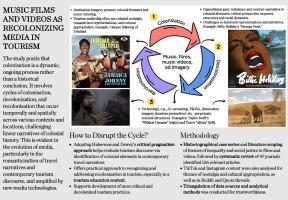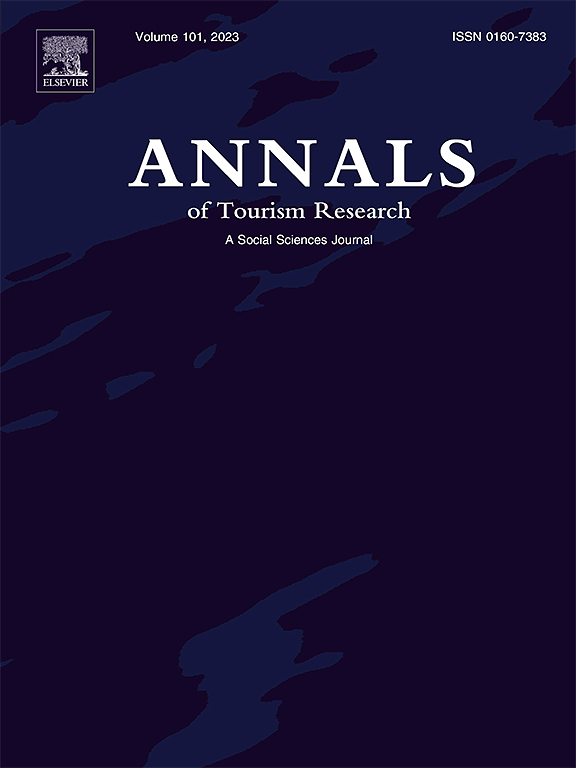Music films and videos as recolonizing media in tourism
IF 7.8
1区 管理学
Q1 HOSPITALITY, LEISURE, SPORT & TOURISM
引用次数: 0
Abstract
There is growing awareness within social science that colonization is neither permanent nor complete, with the forces of colonization, decolonization, and recolonization spatially and temporally overlapping. Selective recolonization is evidenced in cultural appropriations and colonial nostalgia as described by diasporic authors such as V.S. Naipaul. However, examples of oppositional gaze are also evident in music films and videos ranging from Billie Holliday's “Strange Fruit” to Childish Gambino's “This Is America.” Artificial intelligence, streaming technologies, and destination images offer a potent synthesis that can undermine decolonization. We assert that the critical pragmatism of Habermas and Dewey can be used to identify and evaluate manifestations of selective recolonization, the oppositional gaze they engender, and how both infuse contemporary travel and tourism discourses.

音乐电影和录像作为旅游的再殖民媒体
社会科学界越来越认识到,殖民化既不是永久的,也不是完全的,殖民化、非殖民化和再殖民化的力量在空间和时间上是重叠的。如奈保尔等散居作家所描述的那样,选择性再殖民化在文化挪用和殖民怀旧中得到了证明。然而,从Billie Holliday的《Strange Fruit》到Childish Gambino的《This Is America》,在音乐电影和视频中也可以看到对立性凝视的例子。人工智能、流媒体技术和目的地图像提供了一个强有力的综合,可以破坏去殖民化。我们认为,哈贝马斯和杜威的批判实用主义可以用来识别和评估选择性再殖民化的表现形式,它们所产生的对立凝视,以及它们如何注入当代旅行和旅游话语。
本文章由计算机程序翻译,如有差异,请以英文原文为准。
求助全文
约1分钟内获得全文
求助全文
来源期刊

Annals of Tourism Research
Multiple-
CiteScore
19.10
自引率
9.10%
发文量
135
审稿时长
42 days
期刊介绍:
The Annals of Tourism Research is a scholarly journal that focuses on academic perspectives related to tourism. The journal defines tourism as a global economic activity that involves travel behavior, management and marketing activities of service industries catering to consumer demand, the effects of tourism on communities, and policy and governance at local, national, and international levels. While the journal aims to strike a balance between theory and application, its primary focus is on developing theoretical constructs that bridge the gap between business and the social and behavioral sciences. The disciplinary areas covered in the journal include, but are not limited to, service industries management, marketing science, consumer marketing, decision-making and behavior, business ethics, economics and forecasting, environment, geography and development, education and knowledge development, political science and administration, consumer-focused psychology, and anthropology and sociology.
 求助内容:
求助内容: 应助结果提醒方式:
应助结果提醒方式:


